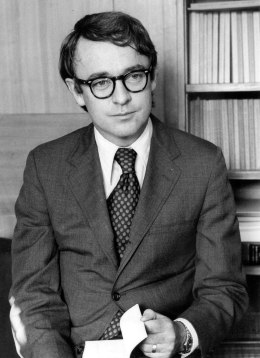
In the spring of 1982, James Q. Wilson co-authored the article “Broken Windows” in the Atlantic. Its central theory, that cracking down on small but visible crimes — graffiti drawing, street-corner drug dealing, window breaking — could prevent neighborhoods from fostering more serious ones, became a foundation for big-city policing and contributed to steep reductions in crime. Wilson, who died March 2 at 80, also did insightful work on the importance of character and private virtue, among people targeted by public policies, for making those policies succeed. A conservative and pragmatic social scientist, he once said, “I know my political ideas affect what I write, but I’ve tried to follow the facts wherever they land.”
This text originally appeared in the Mar. 19, 2012 issue of TIME magazine.
